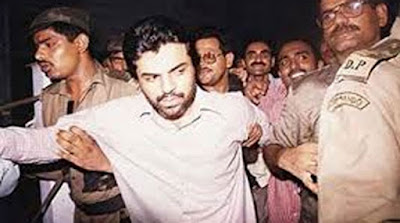Written by Maneesh Chhibber |Updated: July 29, 2015 6:14:13 pm
maneesh.chhibber@expressindia.com
If Yakub Memon is hanged on July 30, he will be the third death row convict to be executed following the rejection of their clemency pleas by President Pranab Mukherjee. Since he became President in 2012, Mukherjee has turned down mercy pleas in at least 24 cases. Under Article 72 of the Constitution, the President can grant pardon, and suspend, remit or commute a sentence of death. However, the President does not exercise this power on this own — he has to act on the advice of the Council of Ministers. This too has been made clear by the Constitution.
 |
| In October last year, Yakub applied for presidential pardon after which a report from the state government was sought by the MHA. (PTI) |
Under the existing rules of procedure governing mercy petitions, the view of the Union Ministry of Home Affairs (MHA), conveyed to the President in writing, is taken as the view of the Cabinet, and the President decides a mercy petition accordingly. Once a convict has been finally awarded the death sentence by the Supreme Court, anybody, including a foreign national, can send a mercy petition with regard to that person to the President’s Office or the MHA. A mercy plea can also be sent to the Governor of the state concerned, who then forwards it to the MHA for further action.
The convict can file a mercy plea from prison through officials, his lawyer or family. These days, mercy petitions can also be emailed to the MHA or President’s Secretariat. A few years ago, the Union Ministry of Law told the MHA that the President’s power to grant pardons, reprieves, respites or remissions of punishment under Article 72 was “absolute and cannot be fettered by any statutory provisions” under the Code of Criminal Procedure or prison rules. The then Law Secretary, T K Vishwanathan, also said that while commuting the death sentence, the President could direct that the convict would remain in prison for the whole of his natural life, and not be released after remission of the term. Vishwanathan clarified that life imprisonment meant “imprisonment for the whole of the remaining period of the convicted person’s natural life, and not 14 years in prison”.
Different Presidents have dealt with mercy petitions differently. Since there is no fixed timeframe for disposing of a mercy petition, both the MHA and President have sometimes sat on cases for years. Thus, at the end of his five-year term, APJ Abdul Kalam left behind over two dozen mercy pleas, having decided only two — rejecting the plea of rape-cum-murder convict Dhananjoy Chatterjee (2004), and commuting the death sentence of Kheraj Ram into life imprisonment (2006). Kalam’s predecessor, K R Narayanan, was tardier, and failed to decide a single mercy petition during his 1997-2002 term.
MHA data show that Presidents, with the exceptions of Narayanan and Pratibha Patil, have dealt with mercy petitions largely without mercy. According to information released by the government under the RTI Act, of the 77 mercy pleas decided by Presidents between 1991 and 2010, 69 were rejected. Only 8 — about 10% — of those who sought mercy were spared the gallows. R Venkataraman (1987-1992) rejected 44 mercy pleas, the most by any President. During her 2007-2012 term, Patil, the country’s first woman President, accepted the mercy pleas of 30 death row convicts — pardoning, among others, Piara Singh, Sarabjit Singh, Gurdev Singh and Satnam Singh, who killed 17 members of a family at a wedding; Govindasamy, who murdered five relatives in their sleep; and Dharmender Singh and Narendra Yadav, who killed an entire family of five, including a 15-year-old girl, whom Yadav had tried to rape, and her 10-year-old brother, whom they burnt alive.
Several Presidents have allowed their personal convictions — views against the death penalty or religious beliefs — to come in the way of their taking swift action on pending mercy petitions. Central governments have been accused of being guided by political considerations in making recommendations on mercy pleas to the President. The MHA has sometimes jumped the queue in sending mercy petitions to the President — the most recent case being that of 26/11 terrorist Ajmal Kasab, who was hanged in November 2012. The Ministry has on occasion also changed its recommendation — from rejecting a mercy petition to favouring its acceptance. On the issue of delay in deciding mercy pleas, the Supreme Court in a landmark judgment last year held that the death sentence of a condemned prisoner can be commuted to life imprisonment on the ground of delay on the part of the government in deciding the mercy plea.
Source: https://indianexpress.com/article/india/india-others/how-the-president-decides-matters-of-life-and-death/ (Accessed on 18 December 2018)
No comments:
Post a Comment